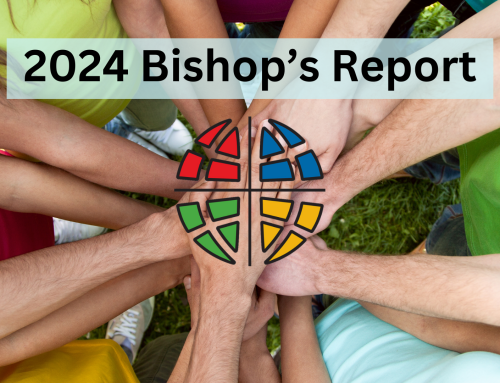2020 marks the 50th anniversary of the ordination of women in the ELCA, the 40th anniversary of women of color, and the 10th anniversary of LGBTQ+ siblings.
It’s an incredibly important marker for the ELCA, though it is only the beginning for the Church, as women are still denied ordination across the denominations and hold less than 15% of the leadership positions in the worldwide church! Therefore, in 2020, we in the Oregon Synod will highlight one woman from Christian history every week for fifty weeks. Some you may know, others you may not, but all worthy of our respect and gratitude.
#23 Pauli Murray
In 1977, at the age of 67, Pauli Murray became the first female African-American Episcopal priest, presiding over her first Eucharist at the same church where her grandmother—a slave—had been baptized as a baby. But that is only one, among many, remarkable details of her life. She was the first African American woman to receive a doctorate of law (JSD) from Yale. She was active in the Civil Rights movement. (Thurgood Marshall, head of the legal department at the National Association for the Advancement of Colored People (NAACP), described her 1951 book States’ Laws on Race and Color, as the bible for civil rights lawyers.) She coined the term “Jane Crow” to describe the extra struggles placed on Black women. She was active in the Women’s movement and a founding member of the National Organization for Women (NOW). She was friends with Eleanor Roosevelt. Yet at every turn society worked to hold her back because of her race and gender and the poverty that dogged her steps. Within the Civil Rights movement, she was disheartened by the sidelining of women, particularly upsetting as she felt herself to be a man. Within the women’s movement, she was disheartened by the sidelining of minority, poor, and gay voices. (Pauli dated women and might have chosen to identify as transgender by today’s standards, as she felt herself to be a heterosexual man). Throughout her life, Pauli used her voice to call for intersectional justice (long before the term was coined). Pauli shows us what can be accomplished when we disregard the limitations placed on us by society and instead choose to follow our internal compass, using our gifts to lead society towards a better future. The world is a more equitable and just place because Pauli Murray lived. In 2012, the Episcopal Church declared her a saint.





